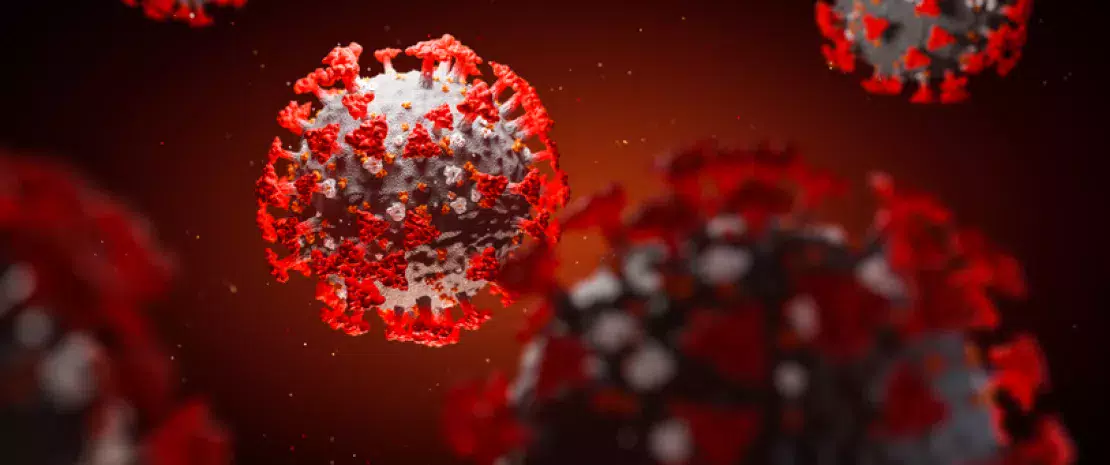Gut microbiota and Covid-19: what the experts know and what they suspect
One of the main target organs for SARS-CoV-2 other than the lungs is the intestines, which also act as a potential dissemination route. Hence this review focusing on gastrointestinal disorders and the role of the gut microbiota in Covid-19 symptoms and mortality.
Lay public section
Find here your dedicated section
Sources
This article is based on scientific information

About this article
Although Covid-19 primarily affects the lungs, physicians and researchers have quickly focused on the role of the gut microbiota in the disease, particularly since intestinal symptoms (vomiting, nausea, diarrhea) appear to be more common in severe cases, with three meta-analyses involving around 4,000-10,000 patients reporting a prevalence of 10% to 17.6%. The infection triggers an inflammatory bowel reaction, evidenced by high fecal levels of a specific biomarker, calprotectin.
The virus is present in the digestive system
SARS-CoV-2 infects cells mainly by binding to the (sidenote: Angiotensin-converting enzyme 2 ) receptor, which is involved in the homeostasis of the renin-angiotensin-aldosterone system, crucial to the pathophysiology of all organs. ACE2 is strongly expressed in lung tissue, hence the vulnerability of this organ, but it is also expressed in the heart, liver, and intestines. The digestive system may therefore be a gateway for the virus via contaminated food. Fecal-oral transmission may follow. Actually, viral RNA is present in the stool of half of Covid-19 patients, even when the virus is absent from the respiratory tract. In addition, the virus appears capable of replicating in the gut.
Potential mechanisms
Several mechanisms may be involved in the gastrointestinal disorders observed:
• Weakening of the intestinal barrier due to local inflammation or virus replication.
• Deregulation of ACE2, whose deficiency increases gut’s susceptibility to inflammation. SARS-CoV-2 reduces the expression of ACE2 in the lungs and is likely to do so in the gut also.
• Alteration in the composition and functions of the microbiota as a result of hypoxia caused by Covid-19.
• Involvement of gut-brain axis. The enteric nervous system may be affected either via direct viral infection or through an (sidenote: For example, inflammatory cytokines ) , intensifying diarrhea and potentially stimulating the vagus nerve to provoke vomiting.
Dysbiosis of the gut microbiota
An ACE2 deficiency has been shown to alter the composition of the intestinal microbiota in mice, and Covid-19 patients develop an intestinal dysbiosis, with a loss of bacterial diversity and abundance. This dysbiosis has significant consequences: the gut microbiota can remotely stimulate the host’s response to respiratory viral infections; conversely, the dysbiosis can worsen the outcome of the disease, with reduced presence of commensal bacteria favoring the over-representation of pathogenic bacteria. Therefore, the role of the gut microbiota in Covid-19 infections remains to be determined, with the microbiota potentially constituting a biomarker of disease severity or offering therapeutic strategies.







